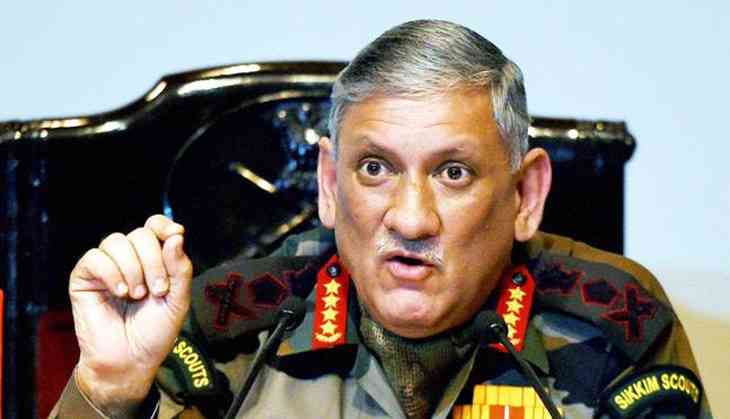After Army chief Bipin Rawat warns of a two-front war, China issues a strong response

Days after Prime Minister Narendra Modi’s meeting with Chinese President XI Jinping, India Army chief General Bipin Rawat seems to have taken on from where the Chinese left off.
In his address at a conference at the Centre for Land Warfare Studies in New Delhi, the Army Chief, who is known to be generous when it comes to making provocative statements, said that since China has started flexing muscles, India should be prepared for a two-front war. This would mean if China initiated a situation and Pakistan jumped into the fray, India would have a messy situation at hand.
"As far as the northern adversary (China) is concerned, the flexing of muscles has started... Salami slicing, taking over territory in a very gradual manner, testing our limits of threshold... is something we have to be wary about and remain prepared for situations that could develop into conflicts," General Rawat rwportesly said.
These comments, just days after the disengagement at Doklam, a standoff which lasted more than two months and saw shrill Chinese rhetoric laced with threats of a military conflict, has come as a surprise to many. It has also invited a strong response from the Chinese.
"Just two days ago, President Xi Jinping pointed to Prime Minister Narendra Modi that the two countries are each other's development opportunities, not threats," said Geng Shuang, a spokesperson for the Chinese government. "We don't know whether he was authorised to speak those words or it was just his spontaneous words or whether his words represented the position of the Indian government," he reportedly said.
The possibilities
The fundamental question is: can three nuclear armed neighbours - India, China and Pakistan - afford such a conflict?
Moreover, it is one thing for the Chinese to align with Pakistan, for it suits their interest, but another thing to fight at their behalf. The recent BRICS statement where China agreed to the joint declaration which had mention of Pakistan based terror outfits, the Jaish-e-Mohamamad and the Lashkar-e-Taiba is one example that China’s support to Pakistan is not a blank cheque.
Also, the Chinese may not want to risk the massive trade and business they do with India by starting off a conflict. Perhaps this weighed heavily on the minds of the Chinese leadership when it climbed down on Doklam, and agreed to disengage despite aggressive posturing all through the standoff.
Experts say such belligerence by an Army chief just after a sensitive incident has been diplomatically solved temporarily is totally uncalled for.
Boosting morale?
But others also point out that Indian Army Chief has a very limited role when it comes to influencing the policy. The Indian Army does not enjoy the kind of influence a Pakistani Army Chief has, for example, in matters of policy. Rawat’s words may just very well be pep talk to boost the morale of the troops after a long tense standoff. As an Army chief, he is just supposed to point out contingencies, and a two-front war is one.
Professor Srikanth Kondapalli of Chinese Studies at JNU, points out how military ethos demand that the army has to be prepared for war at all times. And Rawat may have given the statement to counter aggression, show that India is prepared under the nuclear threshold, and to boost the confidence of the troops.
While India and China have a no-first use policy, Pakistan has retained the options of first use when it comes to nuclear weapons.
Meanwhile, the disengagement at Doklam one cannot be sure of the Chinese intentions with China claiming that it will continue with Patrols and protect its territorial sovereignty.
It was in 2009 that an Indian Army Chief General Deepak Kapoor, used the term two-front war. The Army Chiefs have used it multiple times since.
However, as PM Modi is reportedly learnt to have advised his council of ministers to not jump the gun and let just the MEA do the talking, the Army Chief could also do with less talking.
First published: 7 September 2017, 23:13 IST
